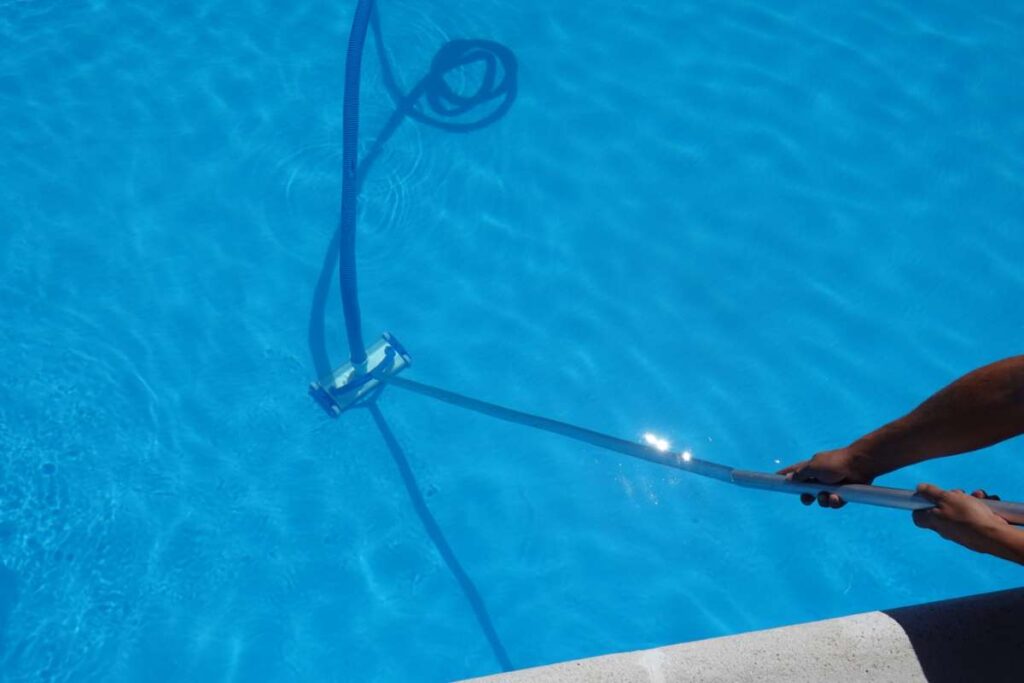Identifying the Early Signs of a Pool Leak
Discover how to identify the early signs of a pool leak and protect your investment. Learn the telltale signs, prevention tips, and more!
Owning a pool is a great source of enjoyment, relaxation, and exercise, but it also comes with responsibilities. One of the most significant concerns pool owners face is leaks. A pool leak can cause not only increased water bills but also potential damage to your property and the environment. Identifying the early signs of a pool leak is crucial to maintaining your pool’s health and sustaining its value. In this blog post, we will explore the various signs of a pool leak, how to locate it, and what steps you can take to prevent costly repairs.
Understanding Pool Leaks: Why They Matter
– Pool leaks can lead to a significant loss of water. According to the U.S. Environmental Protection Agency (EPA), a leak of just one drop per second can waste more than 1,000 gallons of water per year. – Besides the environmental impact, undetected leaks may lead to structural damage to your pool and surrounding areas, resulting in costly repairs.- Additionally, leaks can compromise your pool’s chemical balance, making it harder to maintain safe and clean water.Recognizing the signs early on can save you time, money, and stress. So, what are the early signs of a pool leak that every pool owner should be aware of?
Common Signs of a Pool Leak
– Water Level Drop: If you notice the water level in your pool dropping significantly more than normal evaporation rates, it could indicate a leak. To check, mark the water level with a piece of tape and monitor it over a few days to differentiate between evaporation and leaks. – Wet Spots Around the Pool: If you see unusually wet areas in your yard near the pool, it can signal a leak. Excess moisture can also lead to landscaping problems, attracting pests, and creating sinkholes.- Increased Water Bills: A sudden spike in your water bill can be a warning sign of a leak. Tracking your monthly water usage will help you determine if something is amiss with your pool.- Cracks or Shifting Soil: Inspect the area around your pool for cracks or shifting. Soil erosion caused by a leak can shift the foundation, resulting in maintenance issues.- Unusual Pool Chemistry: If you find it challenging to maintain the correct chemical balance in your pool, please check for leaks. Leaks can dilute your pool chemicals, causing unnecessary chemical expenditure and potential health hazards.Recognizing these early signs can help you address leaks before they escalate into serious issues.
Locating a Pool Leak: Steps to Take
Once you suspect a leak, it’s essential to locate it. Here are some steps to help you find the leak:1. Conduct a Bucket Test: This simple test can determine if the water loss is due to evaporation or a leak. Fill a bucket with water and place it on the pool steps. Mark the water level inside the bucket and on the pool’s side. After 24 hours, compare the water levels. If the pool water has dropped more than the water in the bucket, you likely have a leak.2. Inspect Pool Equipment: Check your pool pump, filter, and heater for any visible signs of leaks or corrosion. Look for puddles around equipment, which can indicate leaks from hoses or fittings.3. Examine the Pool Shell: Conduct a thorough inspection of the pool’s surface, including the tiles, walls, and skimmers. Look for cracks, chips, or other damage where water could escape.4. Check the Skimmer and Main Drain: Inspect the skimmer and main drain for any signs of leaks or damage. Ensure that the gaskets and seals are intact.5. Hire a Professional: If you’re unable to locate the leak, consider hiring a professional leak detection service. These experts use specialized equipment to pinpoint leaks quickly and accurately.By methodically investigating your pool, you can identify the source of the leak and take corrective action.
Preventing Pool Leaks: Best Practices
Preventing leaks is the best way to protect your investment. Here are some strategies to minimize the risk:- Regular Maintenance: Conduct regular inspections of your pool and its components. Check for cracks, wear, and tear, and address issues promptly. Routine maintenance can help you catch potential problems before they become significant.- Proper Chemical Balancing: Maintain balanced water chemistry to prevent corrosion or scaling that can lead to leaks. Regularly test and adjust your pool’s pH, alkalinity, and chlorine levels.- Use Quality Materials: When installing or repairing your pool, use high-quality materials that can withstand the test of time. Cheap materials can lead to leaks over time due to wear and tear.- Install a Pool Cover: Using a pool cover can help reduce evaporation and protect your pool from debris, which can cause damage and leaks.- Monitor Water Levels Regularly: Keep an eye on your pool’s water levels and be proactive in addressing any significant drops. Implementing these practices not only helps prevent leaks but also enhances the overall longevity of your pool.
What to Do If You Find a Leak
If your investigation confirms a leak, it’s time to act. Here’s what you can do:1. Assess the Severity: Determine whether the leak is minor (like a small crack) or severe (like a major structural issue). Minor leaks may be fixable with sealants or patches, while severe leaks may require professional repairs.2. Stop Using the Pool: If the leak is significant, stop using the pool until it’s repaired to prevent further water loss and potential damage.3. Contact a Professional: For significant leaks, it’s best to consult with a pool repair expert. They can provide an accurate assessment and recommend appropriate repair methods.4. Consider Upgrades: If you’re faced with a major leak, consider upgrading your pool equipment or structure. Investing in quality repairs can save you money in the long run.5. Document Everything: Keep records of the leak detection process, repairs made, and any costs incurred. This documentation can be helpful for insurance claims or future maintenance.Addressing leaks swiftly can prevent further damage to your pool and property.
Conclusion
Identifying the early signs of a pool leak is essential for maintaining the health of your pool and protecting your investment. By being aware of the common signs, knowing how to locate a leak, and implementing preventive measures, you can ensure that your pool remains a source of enjoyment for years to come. Remember, regular maintenance and vigilance are your best friends in safeguarding your pool.If you’re interested in taking your pool service business to the next level, consider exploring our
pool routes for sale in your region. With over 20,000 accounts sold, we offer unmatched training and support to help you succeed in the pool maintenance industry. For more information, visit our
Superior Pool Routes Home Page or
Contact Us. Protect your pool, enhance your business, and dive into success today!



